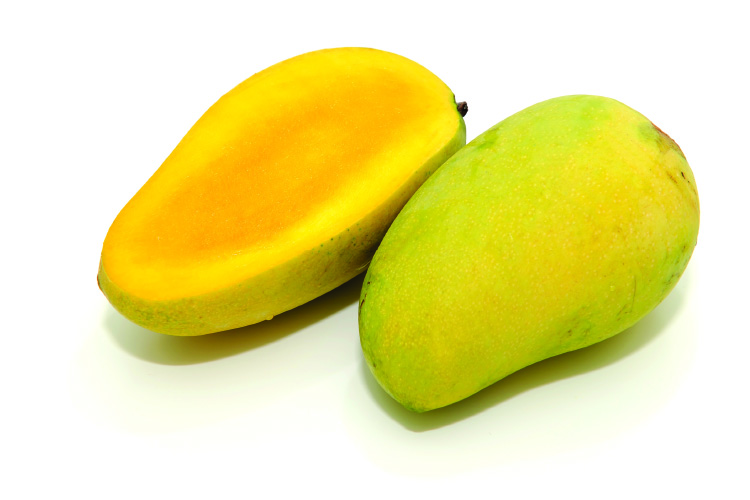Mango is said to have been cultivated for over 6,000 years at the foothills of the Himalayas of India and Burma. The English singular form mango comes from the Latin Mangifera indica meaning mango-bearing plant from India. The mango is a member of the Anachardiaceae family which includes poison ivy, cashews, and pistachios. Today there are over 1,000 different varieties of mangos throughout the world.
- High vitamin E in mango helps to regulate sex hormones and boosts sex drive
- An excellent source of vitamin-A and flavonoids like beta-carotene, alpha-carotene, and beta-cryptoxanthin. 100g of fresh fruit provides 765 mg or 25% of recommended daily levels of vitamin A – all essential for vision
- A very good source of vitamin-B6 (pyridoxine), vitamin-C and vitamin-E. Vitamin B-6 or pyridoxine is required for GABA hormone production in the brain
- Glutamine acid in mangoes is excellent to boost memory and keep cells active
- Controls homocystiene levels in the blood, which may otherwise be harmful to blood vessels resulting in CAD and stroke
- Bio-active elements such as Esters, Terpenes and Aldehydes present in mango aids digestion
- Fresh mango is a very rich source of potassium – an important component of cell and body fluids that helps control heart rate and blood pressure
- Rich in amino acids, niacin, calcium, and magnesium
- High level of soluble dietary fibre, and pectin present in mangoes helps to lower serum cholesterol levels specifically LDL cholesterol (the bad one)
- Rich in iron – great for people suffering anemia
- High in copper – required for the production of red blood cells
- Mango peels are also rich in phytonutrients, such as the pigment antioxidants like carotenoids and polyphenols
















